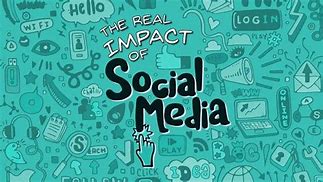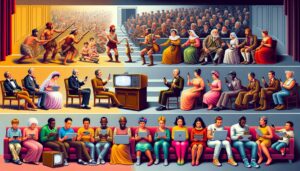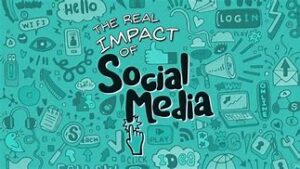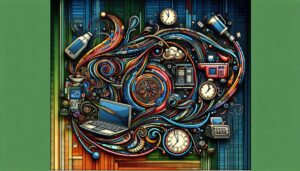The Influence of Social Media on Entertainment: Trends and Transformations

In the digital age, social media has become a dominant force shaping the entertainment industry. Platforms like Instagram, TikTok, Twitter, and YouTube have transformed how content is created, distributed, and consumed. This shift has not only changed the landscape of traditional entertainment but also introduced new trends and transformations that continue to evolve. Here’s a closer look at the profound influence of social media on entertainment.
 1. Content Creation and Distribution
1. Content Creation and Distribution
Rise of Influencers: Social media has given rise to a new breed of content creators known as influencers. These individuals, with their substantial follower bases, have become key players in the entertainment industry. They create engaging content, from lifestyle vlogs to comedic skits, that resonates with their audience. Influencers often collaborate with brands, participate in sponsored content, and even branch out into traditional media roles.
User-Generated Content: Platforms like TikTok and YouTube have democratized content creation, allowing anyone with a smartphone to produce and share videos. This user-generated content has led to viral trends, challenges, and memes that captivate global audiences. The ease of sharing and the potential for virality have empowered everyday users to become entertainers in their own right.
Direct Distribution Channels: Social media enables artists and creators to distribute their work directly to their audience without relying on traditional media channels. Musicians release new songs on platforms like SoundCloud and Spotify, filmmakers debut their short films on YouTube, and authors promote their books through Instagram and Twitter. This direct access allows creators to build and engage with their fanbase more effectively.
2. Audience Engagement and Interaction
Real-Time Interaction: One of the most significant impacts of social media on entertainment is the ability for real-time interaction between creators and their audience. Live streaming on platforms like Instagram Live, Twitch, and Facebook Live allows fans to interact with their favorite creators through comments and Q&A sessions. This immediacy fosters a sense of community and deeper connection.
Fan Communities: Social media platforms have become hubs for fan communities, where enthusiasts of a particular show, movie, or artist can connect and share their passion. These communities often engage in discussions, share fan art, and organize events, creating a vibrant ecosystem of user engagement.
Feedback and Influence: Audiences now have a more direct role in shaping the content they consume. Social media allows fans to provide instant feedback, which creators can use to adjust their content. This feedback loop ensures that the content remains relevant and appealing to the audience.
3. Marketing and Promotion
Targeted Advertising: Social media platforms offer sophisticated tools for targeted advertising, allowing entertainment companies to reach specific demographics with tailored content. This precision marketing helps in promoting movies, TV shows, music releases, and live events more effectively.
Viral Marketing Campaigns: The potential for content to go viral on social media has revolutionized promotional strategies. Hashtag challenges, viral videos, and interactive campaigns engage users and encourage them to spread the word, amplifying the reach of promotional efforts.
Influencer Partnerships: Brands and entertainment companies often collaborate with influencers to promote their content. Influencers bring authenticity and trust, making their endorsements more impactful than traditional advertisements.
4. New Forms of Content and Consumption
Short-Form Videos: Platforms like TikTok have popularized short-form video content, which is designed to be easily consumable and shareable. These bite-sized videos have become a new form of entertainment, with trends and challenges driving massive engagement.
Podcasting: Social media has also contributed to the rise of podcasting. Creators promote their podcasts through social media channels, reaching wider audiences and fostering listener communities. Podcasts offer a unique blend of entertainment and information, catering to diverse interests.
Interactive and Immersive Experiences: Social media is increasingly incorporating interactive and immersive experiences, such as 360-degree videos, virtual reality (VR) content, and augmented reality (AR) filters. These technologies provide users with new ways to engage with entertainment content.
5. Challenges and Considerations
Content Saturation: The sheer volume of content available on social media can lead to content saturation. Creators must continuously innovate and find new ways to stand out in a crowded space.
Monetization Issues: While social media provides opportunities for monetization through ads and sponsorships, it also poses challenges. Platforms often control the revenue distribution, and changes in algorithms can impact a creator’s earnings.
Mental Health Impacts: The pressure to constantly create content and maintain engagement can take a toll on creators’ mental health. Additionally, the public scrutiny and cyberbullying prevalent on social media can affect both creators and consumers.
Conclusion
Social media has fundamentally transformed the entertainment industry, reshaping how content is created, distributed, and consumed. It has empowered individuals to become creators, facilitated real-time interaction between artists and audiences, and introduced new marketing strategies. However, these changes also bring challenges that must be navigated carefully.
As social media continues to evolve, its impact on entertainment will undoubtedly grow, offering new opportunities for creativity and connection. For both creators and consumers, understanding and leveraging the power of social media is essential in the ever-changing landscape of modern entertainment.





